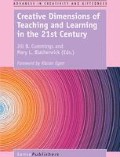Abstract
Many English as a second language (ESL) writers at the tertiary level lack contextual, rhetorical, or lexicogrammatical knowledge to meet the criteria of good writing in the academia of English-speaking countries. To improve upon these areas, they often come to university writing centers (UWCs) to seek assistance and many focus on lexicogrammatical knowledge and skills (Blau, Hall, & Sparks, 2002; Harris, 1997; Harris & Silva, 1993; Moussu, 2013; Myers, 2003; Powers & Nelson, 1995).
Access this chapter
Tax calculation will be finalised at checkout
Purchases are for personal use only
Preview
Unable to display preview. Download preview PDF.
References
Aljaafreh, A., & Lantolf, J. P. (1994). Negative feedback as regulation and second language learning in the zone of Proximal development. Modern Language Journal, 78(4), 465.
Blau, S., Hall, J., & Sparks, S. (2002). Guilt-free tutoring: Rethinking how we tutor Non-Native-English- Speaking students. Writing Center Journal, 23(1), 23–44.
Cumming, A. (1998). Theoretical perspectives on writing. Annual Review of Applied Linguistics, 18, 61–78.
Gillespie, P., & Lerner, N. (2000). The Allyn and Bacon guide to peer tutoring. Needham Heights, MA: Allyn and Bacon.
Harris, M. (1997). Cultural conflicts in the writing center: Expectations and assumptions of ESL students. In C. Severino & J. C. Guerra (Eds.), Writing in multicultural settings (pp. 220–233). New York, NY: MLA.
Harris, M., & Silva, T. (1993). Tutoring ESL students: Issues and options. College Composition and Communication, 44(4), 525–537.
Hyland, K. (2003). Second language writing. Cambridge, UK: Cambridge University Press.
Jones, C. (2001). The relationship between writing centers and improvement in writing ability: An assessment of the literature. Education, 122(1), 3.
Lantolf, J. P., & Thorne, S. L. (2007). Sociocultural theory and second language learning. In B. VanPatten & J. Williams (Eds.), Theories in second language acquisition: An introduction (pp. 201–224). Mahwah, NJ: Lawrence Erlbaum.
Moussu, L. (2013). Let’s talk! ESL students’ needs and writing center philosophy. TESL Canada Journal, 30(2), 55–68.
Myers, S. A. (2003). Reassessing the ‘Proofreading Trap’: ESL tutoring and writing instruction. Writing Center Journal, 24(1), 51–70.
Nassaji, H., & Swain, M. (2000). A Vygotskian perspective on corrective feedback in L2: The effect of random versus negotiated help on the learning of English articles. Language Awareness, 9(1), 34–51.
North, S. M. (1984). The idea of a writing center. College English, 46(5), 433–446.
Powers, J. K., & Nelson, J. V. (1995). L2 writers and the writing center: A national survey of writing center conferencing at graduate institutions. Journal of Second Language Writing, 4(2), 113–138.
Severino, C. (2009). Avoiding appropriation. ESL Writers: A Guide for Writing Center Tutors, 2.
Taylor, V. G. G. (2007). The balance of rhetoric and linguistics: A study of second language writing center tutorials (Doctoral dissertation). Purdue University, West Lafayette, IN.
Author information
Authors and Affiliations
Editor information
Editors and Affiliations
Rights and permissions
Copyright information
© 2017 Sense Publishers
About this chapter
Cite this chapter
Zhou, A.A., Hu, X. (2017). Tutoring Second Language Learners within Their Zone of Proximal Development. In: Cummings, J.B., Blatherwick, M.L. (eds) Creative Dimensions of Teaching and Learning in the 21st Century. Advances in Creativity and Giftedness. SensePublishers, Rotterdam. https://doi.org/10.1007/978-94-6351-047-9_29
Download citation
DOI: https://doi.org/10.1007/978-94-6351-047-9_29
Publisher Name: SensePublishers, Rotterdam
Online ISBN: 978-94-6351-047-9
eBook Packages: EducationEducation (R0)

